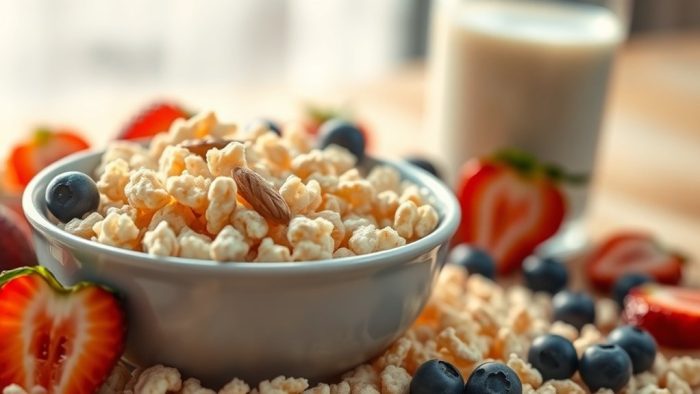Are Chocolate Chips Vegan

Most chocolate chips aren’t vegan because manufacturers add dairy derivatives like milk powder, whey, or milkfat—even to semi-sweet and dark varieties. You’ll need to carefully check ingredient labels for hidden animal products, as only chips made with cocoa solids, cocoa butter, and sugar qualify as vegan. Certified brands like Enjoy Life and Nestle Toll House Allergen-Free offer reliable options, though cross-contamination remains a concern. Understanding certification labels and choosing chips from dedicated vegan facilities will help you make confident purchasing decisions for your baking needs.
Understanding Vegan Vs Non-Vegan Chocolate Chips

When shopping for chocolate chips, the distinction between vegan and non-vegan varieties hinges entirely on the presence of animal-derived ingredients.
You’ll need to scrutinize the ingredients list carefully, as non-vegan ingredients like dry milk powder, whey protein, milkfat, and casein commonly appear in milk and white chocolate varieties.
Dark chocolate chips are typically your best option, though they’re not automatically vegan—some brands still incorporate dairy-derived components.
Vegan chocolate chips contain only plant-based ingredients: cocoa solids, cocoa butter, and sugar.
Look for certified vegan labels from brands like Enjoy Life, Nestle Toll House Allergen-Free, and Guittard to verify your chocolate chips are vegan.
These dairy-free chocolate chips guarantee complete absence of animal products while meeting allergen-free standards.
Decoding Ingredient Labels: What to Look For and Avoid
Although chocolate chips may appear simple, their ingredient labels reveal critical information that determines whether they’re truly vegan. You’ll need to check the ingredient list carefully for non-vegan components like milkfat, whey protein, casein, and dairy milk, which disqualify products from being vegan-friendly products.
Look for chocolate chips that contain only sugar, chocolate, and cocoa butter—these typically align with vegan products. Semi-sweet chocolate chips require extra scrutiny, as manufacturers often add dairy ingredients.
For ideal assurance, seek certifications like Vegan Action on packaging. Consider choosing options with organic cocoa and organic sugar, as conventional sugar processing may involve bone char filtration.
Breaking Down Chocolate Chip Types: Semi-Sweet, Dark, Milk, and White

Understanding ingredient labels sets the foundation, but recognizing how different chocolate chip varieties naturally differ in their vegan status will refine your shopping decisions.
Dark chocolate chips typically align best with a vegan lifestyle, containing cocoa solids, cocoa butter, and sugar—though ingredient checks remain essential as some brands add dairy products.
Semi-sweet chocolate chips can support your vegan diet, but you’ll need to verify labels for hidden milkfat or dry milk powder.
Milk chocolate inherently contains milk solids, making it incompatible with plant-based eating. White chocolate chips likewise rely on milk powder as a core component, disqualifying them from vegan consideration.
Prioritize products displaying “vegan” or “organic” certifications to confidently avoid animal-derived ingredients in your chocolate selections.
Vegan Chocolate Chip Brands: A Complete Shopping Guide
Where can you find reliably vegan chocolate chips without scrutinizing every ingredient label? Several Vegan Chocolate Chip Brands offer certified options perfect for vegan baking.
Enjoy Life and Nestle Toll House lead the market with allergen-free formulations, while Ghirardelli and Endangered Species provide dark chocolate options at various cocoa percentages.
These chocolate chips are manufactured using organic chocolate and cane sugar, typically priced between $6-$7 per bag at major retailers:
- Kroger and Walmart stock mainstream brands like Nestle Toll House and Enjoy Life
- Amazon offers specialty options including Pascha and Lily’s sugar-free varieties
- Health food stores carry premium organic chocolate selections from Endangered Species
For low-carb needs, Lily’s provides sugar-free alternatives that maintain vegan certification while meeting specific dietary requirements.
Sugar Refining and Hidden Animal Products in Chocolate Chips

Even seemingly simple chocolate chips can harbor unexpected animal-derived ingredients that compromise their vegan status.
When examining ingredient labels, you’ll need to watch for hidden animal products like milkfat, casein, and whey protein—particularly in milk and white chocolate varieties. Dark chocolate typically contains fewer dairy ingredients, making it your safer option.
Sugar refining presents another concern: processed sugar may be filtered through bone char, rendering it non-vegan despite appearing plant-based.
Choosing chocolate chips made with organic sugar eliminates this issue, as bone char processing isn’t permitted in organic production.
True vegan chocolate chips contain only cocoa solids, cocoa butter, and cane sugar.
Look for brands explicitly labeled “vegan” or those using organic sugar to guarantee your chocolate chips align with vegan principles.
Cross-Contamination and Certification: What the Labels Mean
Even when chocolate chips contain no animal-derived ingredients, cross-contamination during manufacturing can introduce dairy proteins that compromise their vegan status.
You’ll need to evaluate both certification marks—such as Vegan Action or Certified Vegan logos—and advisory labels like “may contain milk” to assess contamination risk.
For strict vegans or those with dairy allergies, understanding these distinctions becomes critical, as shared equipment and facilities create varying levels of exposure that labels attempt to communicate.
Understanding Cross-Contamination Risks
When vegan chocolate chips share production lines with dairy-containing products, cross-contamination becomes a legitimate concern for strict adherents to plant-based diets.
Trace amounts of non-vegan ingredients can transfer during manufacturing, even when chocolate chips contain no intentional animal-derived components.
To minimize cross-contamination risks, consider these protective measures:
- Seek Vegan Action certification on packaging, confirming products are free from animal by-products
- Examine allergen labeling for “may contain milk” warnings that signal potential cross-contact
- Choose brands from dedicated vegan facilities where dairy products never enter production areas
While PETA acknowledges inadvertent consumption doesn’t compromise vegan status, strict vegans often prefer guaranteed purity.
Contact manufacturers directly when certifications aren’t visible, as many companies can verify their cross-contamination prevention protocols and facility practices.
Vegan Certification Standards Explained
Vegan certification logos transform label reading from guesswork into a straightforward verification process. When you’re selecting chocolate chips made for vegan diets, certifications from organizations like Vegan Action confirm that products contain zero animal-derived ingredients and meet rigorous standards.
These certifications verify manufacturing practices prevent cross-contamination with milk products during production.
However, you’ll notice some certified vegan chocolate chips still display warnings like “made in a facility that processes milk.” For strict vegans concerned about potential cross-contamination risks, this distinction matters considerably. While the product itself contains no animal ingredients, trace amounts may occur through shared equipment.
If you’re particularly sensitive to cross-contamination, contacting manufacturers directly provides the most reliable information about their specific production protocols and cleaning procedures between product runs.
When Contamination Matters Most
While most vegans don’t lose sleep over trace contamination from shared equipment, certain situations demand stricter scrutiny of those “may contain milk” warnings.
You’ll want to prioritize certified plant-based chocolate chips when:
- You have severe dairy allergies – Cross-contamination from shared facilities poses legitimate health risks beyond ethical concerns.
- You’re newly vegan – Seeking Vegan Action certification helps you build confidence while learning to guide allergen statements.
- You’re cooking for others – Serving guests with dietary restrictions requires certainty about your ingredients’ vegan status.
Contact manufacturers directly to understand their production processes.
PETA acknowledges that inadvertent consumption doesn’t compromise your vegan identity, but examining labels for dairy products and cross-contamination warnings remains essential for informed decision-making about chocolate chips.
How to Choose the Best Vegan Chocolate Chips for Your Baking Needs
Selecting vegan chocolate chips requires careful attention to ingredient labels, as manufacturers often include hidden dairy derivatives like whey, casein, or milk fat in products that appear plant-based at first glance.
You’ll want to verify the ingredient list contains only cocoa solids, cocoa butter, and cane sugar as primary components. Prioritize certified vegan brands like Enjoy Life, which guarantee zero cross-contamination with dairy during production.
When possible, choose organic chocolate chips, as these use cane sugar not processed with bone char—a critical consideration for strict vegans. For your baking needs, look for dark varieties with at least 55% cocoa percentage, though higher percentages often reduce dairy likelihood.
Always confirm through label verification rather than assuming cocoa content alone guarantees vegan status.





